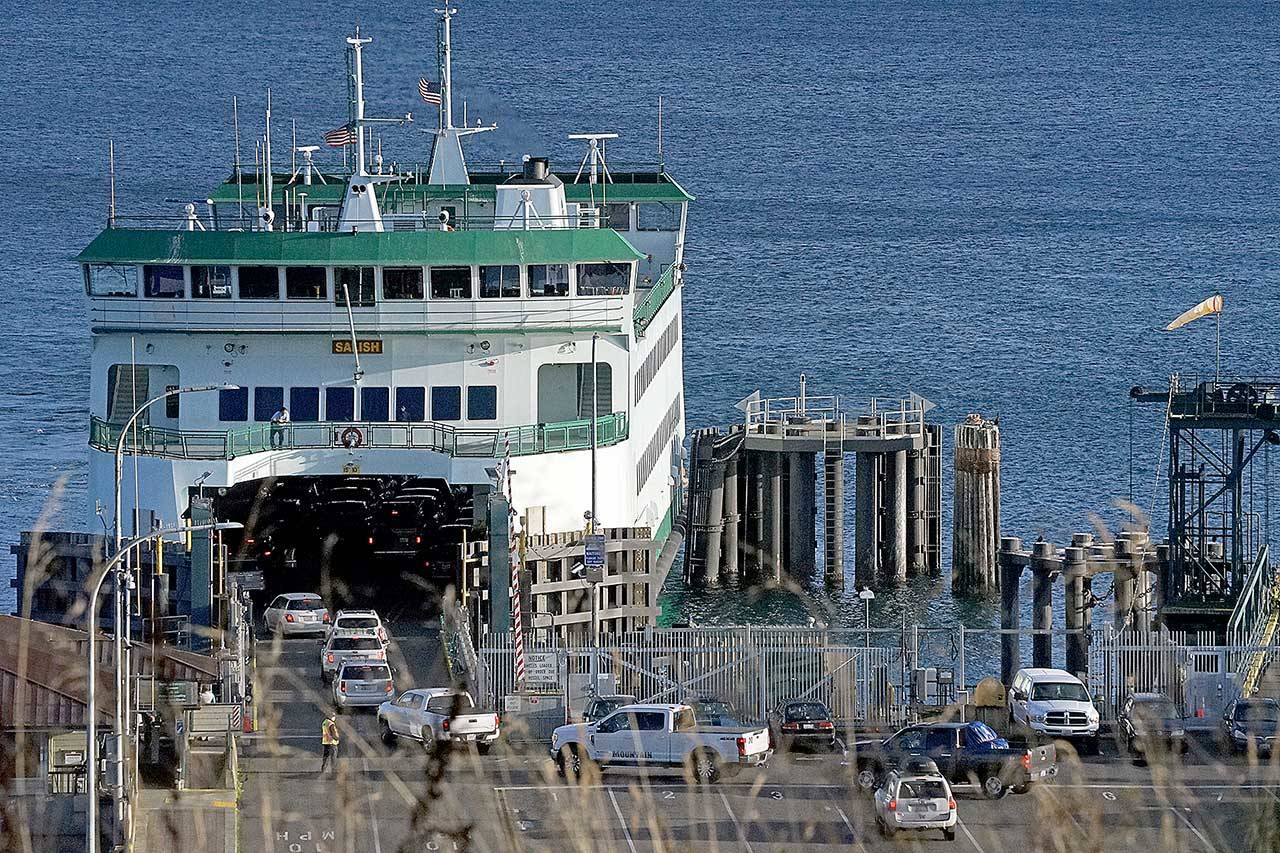PORT TOWNSEND — At least three Jefferson County government agencies have joined forces to attempt to prevent cuts to ferry service floated by the state Department of Transportation ahead of next year’s legislative session.
In late September, the Department of Transporatation (WSDOT) submitted options to the state Office of Financial Management for achieving a 10 percent budget reduction in the 2021-23 biennial budget, including $75 million in cuts spread across the ferry system.
Agency officials have been discussing service-reduction options since May, including reducing the Port Townsend-Coupeville route to one boat by sidelining the MV Salish, which could save more than $2.7 million over a single year, according to a May financial exercise.
A second-tier option would close the route altogether for an annual savings of nearly $14 million.
WSDOT has also floated the idea of pulling a boat from the Edmonds-Kingston route, among a host of other options.
“There are challenging times ahead, and we don’t know what’s going to happen yet,” said WSDOT spokesman Ian Sterling, “but these are some of the things that could be done to make those kinds of cuts.”
Jefferson County Administrator Philip Morley told commissioners Oct. 5 that the impacts “could be severe and significant.” However, unlike the sudden loss of vehicle-ferry service on the Port Townsend-Coupeville route in November 2007, Morley said there remains time to push back against the potential impacts.
That’s why Jefferson County, the city of Port Townsend, the Port of Port Townsend and possibly the Jefferson County Public Utility District have agreed to split the cost of a $10,000 economic impact study by E.D. Hovee & Company.
That study, which got under way earlier this month and is due for completion in mid- to late November, will assess the potential impacts on tourism and commuter traffic of a 50 percent reduction or full discontinuation of service for the Port Townsend-Coupeville and the Kingston-Edmonds ferry routes, according to a study proposal the port approved.
“My thought is that study will provide us with some critical data points to help us make the case for preserving service,” said Eron Berg, executive director of the port. “It will give us something to work with.”
The Port Townsend-Coupeville route handles the second-lowest number of riders and vehicles of any route in the system, according to 2019 statistics, ahead of only the Anacortes-Friday Harbor-Sidney, B.C. route. Service for that route could be discontinued under the current menu of cost-saving options.
“Port Townsend is one of our lowest-performing routes, and it’s an expensive route to operate,” Sterling said. “It’s hard to make money with a 64-car ferry, so they are inefficient in that respect. A lot of routes in the farther-flung areas don’t perform well.”
Nonetheless, that route serves as east Jefferson County’s most direct connection to communities throughout the northern part of the state.
“It’s no different than a mountain pass or a floating bridge,” Berg said. “It’s not just a joy ride, it’s a state highway. It’s absolutely necessary to maintain that link.”
Berg said he’s heard concerns from several Jefferson County businesses that depend on that route as well as the Kingston-Edmonds and Bainbridge-Seattle routes, including Port Townsend Paper Company, Edensaw Woods and Key City Fish Company.
“We are dynamically impacted by every one of those routes,” said John Paul, owner of Key City Fish, acknowledging that his business could handle a reduction in service on that route but a closure could be “devastating.”
That’s because the Port Townsend-Coupeville route, unlike others, allows for reservations — a service implemented after the old Steel Electric ferries were pulled from service in fall 2007.
County Commissioner David Sullivan said he plans to discuss the potential cuts to ferry service with the region’s state representatives next week. He said he expects WSDOT will initially seek to close the route but settle for service reductions in the end.
“That doesn’t mean we shouldn’t be ready to lobby for our interests,” he said. “I think we’ll be successful, but you do have to speak up.”
________
Jefferson County senior reporter Nicholas Johnson can be reached by phone at 360-417-3509 or by email at njohnson@peninsuladailynews.com.

